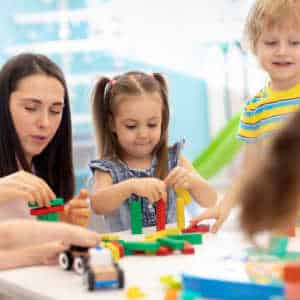Couples Counselling
Written on: 5 February 2025
A Path to Stronger Relationships
Relationships are central to our well-being, but they can also be a source of stress and frustration. Many couples face challenges, from communication breakdowns to the pressures of life changes, and sometimes it feels like you’re stuck in a negative cycle. If you’re finding it difficult to navigate these challenges, couples counselling can be an invaluable resource. In this article, we’ll explore why couples seek therapy, what to expect from the process, and the evidence supporting the benefits of therapy in improving relationships.
Why seek Couples Counselling?
Relationships can go through rough patches for a variety of reasons. The stresses of everyday life, differences in values, or deeper emotional wounds can create tension between partners. If these issues aren’t addressed, they can erode communication, intimacy, and trust over time. Couples counselling provides a supportive space to work through these challenges with professional guidance.
Some of the most common reasons couples seek therapy include:
- Communication issues: Misunderstandings and poor communication can escalate into frequent arguments, leaving partners feeling unheard or undervalued. Couples counselling helps partners learn healthier ways to communicate, listen, and understand each other.
- Loss of connection: Over time, relationships can sometimes feel disconnected. Therapy can help couples rediscover emotional intimacy and rekindle the affection that brought them together.
- Trust and infidelity: Trust issues—whether from infidelity or emotional breaches—can be incredibly difficult to overcome. Couples counselling provides a space to explore these issues and work toward healing.
- Life transitions: Major changes such as becoming parents, relocating, or dealing with the loss of a loved one can put stress on a relationship. Therapy offers strategies for navigating these transitions together.
- Conflict over values or goals: Couples sometimes struggle when their individual values, career goals, or ideas about family life conflict. Therapy can help couples explore their differences and find ways to either reconcile or respect those differences

It’s important to understand that seeking couples therapy doesn’t mean your relationship is failing. Rather, it’s an opportunity to strengthen your bond and invest in the long-term health of your partnership.
What to expect from Couples Counselling
If you’re considering couples counselling, you may wonder what the process involves. While each therapy approach is unique, there are some key aspects that are common across most sessions:
- A Safe, Non-Judgmental Space: One of the primary roles of the therapist is to provide a neutral space where both partners can express themselves openly. The therapist won’t take sides but will help facilitate constructive conversations aimed at understanding each partner’s perspective.
- .Exploring the Relationship: In the initial stages, the therapist may ask questions to understand the dynamics of the relationship, the history of conflicts, and the current challenges. This helps the therapist tailor the sessions to your specific needs.
- Learning Practical Skills: Couples therapy often involves learning practical tools to improve communication, manage conflict, and strengthen emotional bonds. These might include techniques for active listening, expressing needs without blame, and problem-solving strategies.
- Addressing Underlying Issues: While conflicts may seem like the main issue, they often stem from deeper emotional needs or unresolved past experiences. Therapy helps uncover and address these underlying issues, allowing both partners to heal and move forward.
- Goal-Setting: As therapy progresses, couples will work with their therapist to set goals for the relationship. These goals could range from improving communication to rebuilding trust, and the therapist will help you stay on track to achieve them.
- Assignments Between Sessions: Couples may be given “homework” to complete between sessions, such as practising communication techniques or spending quality time together. These tasks help reinforce the skills learned in therapy and apply them to everyday life.
- Ongoing Support: Therapy is a process, and improvements may take time. However, most couples report feeling more hopeful and connected as they work through their challenges with the support of a trained profession.
The evidence behind Couples Counselling
Research consistently shows that couples counselling can be highly effective in improving relationship satisfaction and mental health. A recent systematic review published in the National Library of Medicine found that couples therapy, particularly models like Cognitive Behavioural Therapy (CBT)and Emotionally Focused Therapy (EFT), leads to significant improvements in relationship quality, emotional intimacy, and communication. The review also found that therapy helps reduce conflict and promotes a healthier, more supportive dynamic between partners.
Beyond the relationship itself, therapy was shown to have positive mental health effects, including reductions in anxiety, depression, and stress for both individuals. These benefits were sustained even after therapy had ended, underscoring the long-term value of investing in relationship therapy.
This evidence reinforces the idea that couples counselling is not only effective in addressing immediate relationship challenges but also in enhancing the emotional well-being of both partners, making it a worthwhile option for those seeking to strengthen their relationships.
Benefits of Couples Counselling
The evidence consistently supports the idea that couples counselling can be highly beneficial. Key benefits include:
- Improved communication: Therapy provides tools for expressing emotions and needs without blame, helping couples break through communication barriers and engage in more productive conversations.
- Increased emotional intimacy: By addressing underlying emotional needs, couples can rebuild closeness and affection, leading to a deeper connection.
- Enhanced problem-solving skills: Couples learn how to manage conflict in healthier ways, fostering a sense of teamwork rather than division.
- Greater resilience: Couples who complete therapy often feel more equipped to handle future challenges, with stronger coping skills and a renewed sense of commitment to each other.
- Better mental health: Addressing relationship issues can have a positive impact on mental health, reducing stress, anxiety, and depression for both partners
Is Couples Counselling Right for You?
If you’re facing challenges in your relationship, couples counselling offers an opportunity to address those issues in a supportive and constructive way. It’s not just for relationships in crisis—it can also be a proactive tool for couples who want to strengthen their bond and prevent future issues.
Taking the first step to seek help can feel daunting, but it can also be the key to rediscovering the love, respect, and understanding that you deserve in your relationship. If you’re ready to invest in your partnership and move forward together, couples counselling may be the support you need to achieve your goals.
If you think you may benefit from Couples Counselling, why not get in touch to find out more
 News
News
 News
News
 News
News